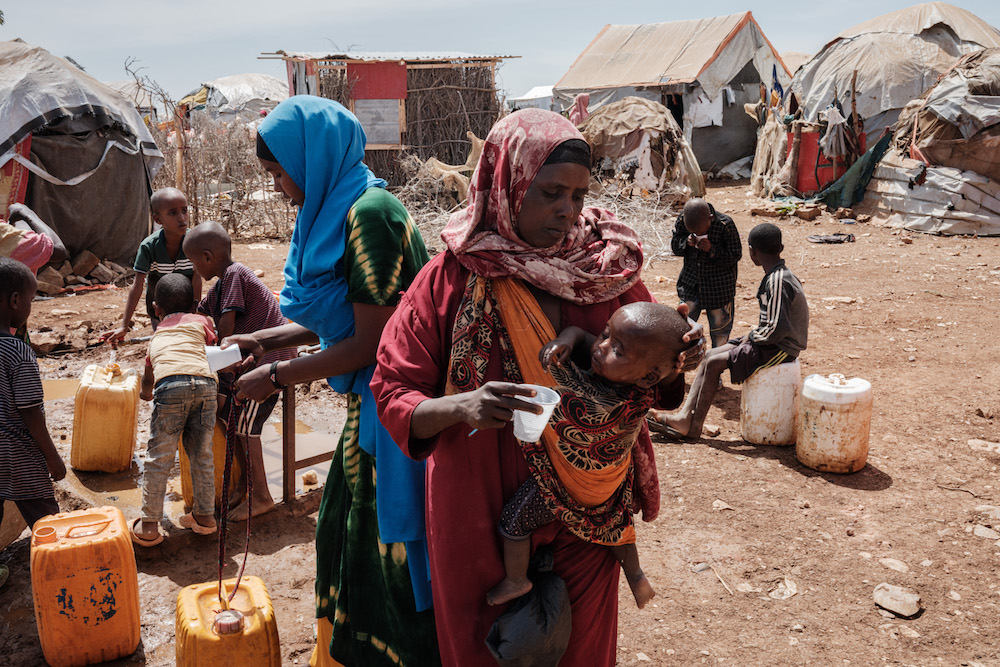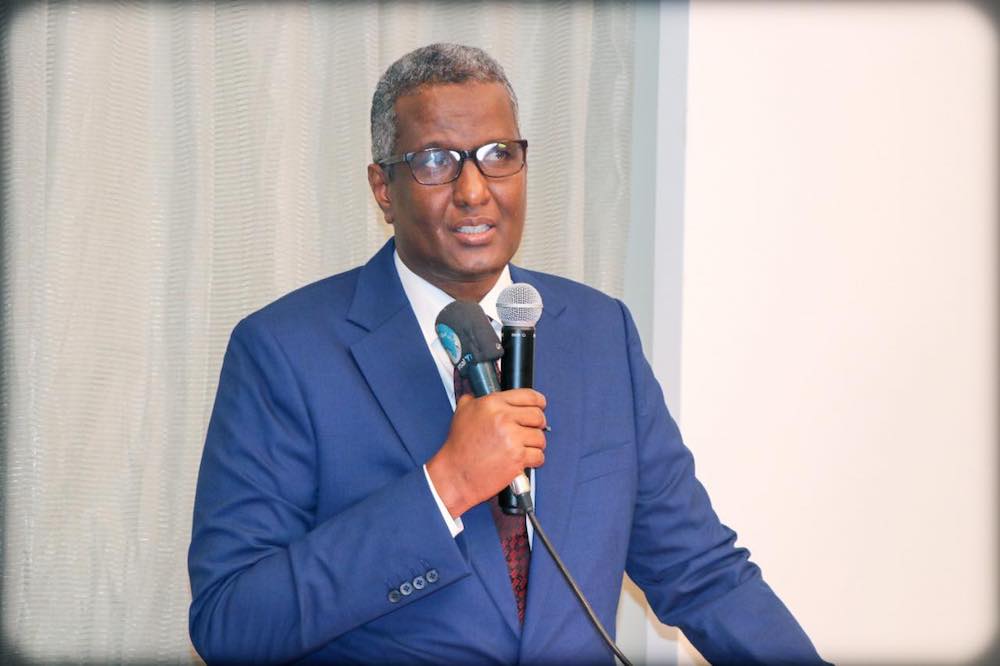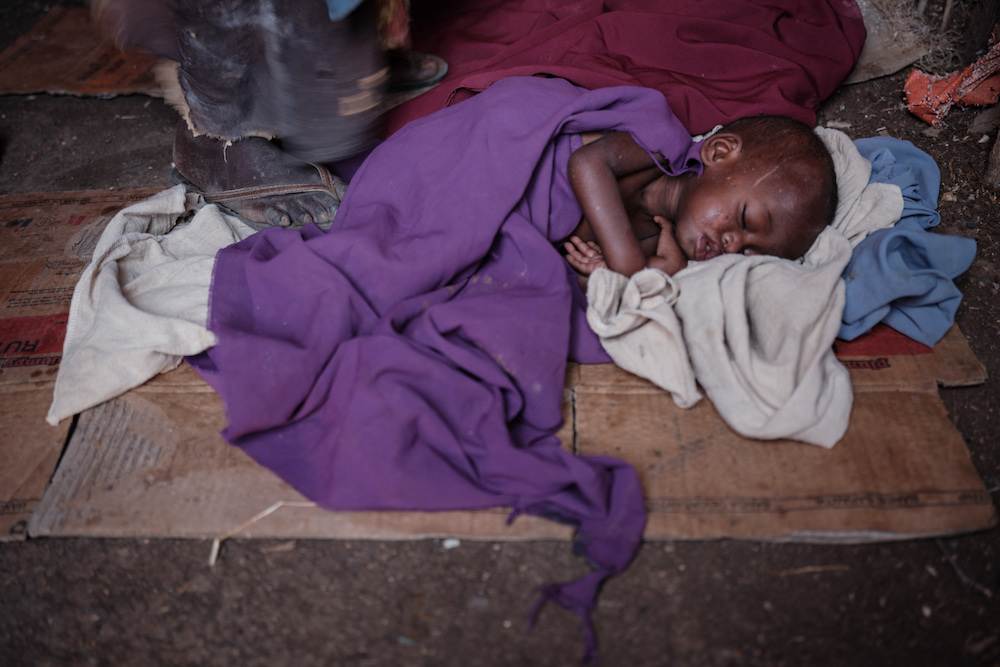NEW YORK CITY: Just a few months ago, Somalia was promised a new era. After a peaceful vote and an equally peaceful transfer of power, many had hoped that a line had been drawn under decades of clan divisions, factious politics, heightened tensions between Mogadishu and the regions, and a persistent extremist presence.
In recent years, Somalia recorded encouraging economic growth as well, lifting the hopes of the international community further.
A new president, whose election had crowned a period of hope that saw the drafting of a new provisional constitution, the establishment of a federal government, and the subsequent formation of five new federal member states, had promised to focus on national reconciliation and on further political and financial reforms.
James Swan, the UN special representative to Somalia, had told the Security Council that Hassan Sheikh Mohamud’s presidency offered a “long-awaited opportunity to advance urgent national priorities.”

Yet it is not because of this progress that Somalia is set to be a major focus of this year’s 77th session of the UN General Assembly. Once again, the country finds itself facing a state of alarming emergency resulting from multiple, overlapping crises.
The UN’s World Meteorological Organization has predicted that the Horn of Africa is likely to face a fifth consecutive failed rainy season over the months of October to December. Somalia is one of the most vulnerable countries to climate change and is ill-equipped to cope with this drought, the worst it has experienced in 40 years.
There is no end in sight, many say. Five years of drought have depleted the country’s water levels, leading to crop failure, with agricultural production falling 70 percent below average. More than 3 million livestock have perished. The animals that remained are now emaciated.
And getting aid to those in need remains a tremendous challenge. Some areas are hard to reach owing to poor road infrastructure. Others are under the control of Al-Shabab, an uncompromising, unpopular group with links to Al-Qaeda.

A mother gives water to her child at a camp for displaced persons in Baidoa, Somalia. Hungry people are heading to Baidoa from rural areas of southern Somalia, one of the regions hardest hit by drought. (AFP)
A deadly insurgency by Al-Shabab against the federal government has resulted in humanitarian aid convoys being attacked. In a vicious cycle, the scarcity that Al-Shabab is exacerbating is in turn leading to more young Somalis being vulnerable to recruitment.
Then came the war in Ukraine, the reverberations from which have been deeply felt in the Horn of Africa. The resultant spike in global grain prices has pushed millions of Somalis to leave their homes and look for food, carrying starving and malnourished children on the way.
Only those who are physically capable of leaving have left, however. As for the most vulnerable, the children, Somalia’s newest generation, they are perishing.
“Food insecurity is a global problem,” Abdirahman Abdishakur, Somalia’s special presidential envoy for drought response, told Arab News.
“The whole world has been affected by disruptions to global supply chains of grain, fertilizer and fuel arising from the conflict in Ukraine. Much like the rest of the world, Somalia has also been affected.
“The difference for Somalia is that this crisis is coming on top of many others that the country has been reeling from for decades.”

UN reports indicate that some communities, particularly agro-pastoral populations in Baidoa and Burhakaba districts and displaced people in the Baidoa town of the Bay region, will experience famine starting in October if aid is not immediately scaled up.
Abdishakur is in New York City to lobby and urge donors, the international community, and the Somali diaspora to support the drought response “before it is too late.”
Various UN bodies, including children’s fund UNICEF, the World Food Program, and the Food and Agriculture Organization, have repeatedly warned that the emergency shows no signs of letting up.
In a statement, the FAO said that “without action, famine will occur within the next few weeks,” adding that drought-related deaths had already been occurring and the toll could be much higher in hard-to-reach rural areas, compared with the number recorded in camps for displaced families.
During the famine of 2011, 340,000 Somali children required treatment for severe acute malnutrition, James Elder, UNICEF spokesperson, said in Geneva, Switzerland. “Today it’s 513,000. It’s a pending nightmare we have not seen this century.”

Abdirahman Abdishakur, Somalia's special presidential envoy, has called for an immediate global response to the country's food crisis. (Supplied)
According to the FAO, approximately 6.7 million people in Somalia will likely endure high levels of acute food insecurity between October and December this year, including more than 300,000 who have been left “empty-handed” by the country’s triple emergency and who are expected to fall into famine.
Abdishakur said: “Needs have escalated, and funds remain below what is required. The window for the international community is literally now. If the world doesn’t scale up assistance, famine could be here as soon as October.”
Although such dire predictions have thrown Somalia into the limelight, famine projections were actually made back in March.
“Many governments have increased their funding over the course of the drought, and we are very grateful. However, the need for adequate levels of funding to contain the initial emergency was not met, allowing the situation to spiral into the crisis we are experiencing today,” he added.
Now, Abdishakur is leading a call for a more aggressive humanitarian response to the crisis to save as many lives as possible.
“The sheer severity of the situation demands a more aggressive, innovative, and tangible reaction from the international community,” he said. And he called on the international community to “rally in the spirit of humanitarian diplomacy” and increase their contributions “before it’s too late.”
“No one should be dying from starvation in 2022. In this world of staggering wealth, skills and knowledge, there should be enough support to go around,” he added.

A child sleeps in a makeshift tent at Muuri camp in Baidoa, one of 500 camps for displaced persons. (AFP)
It is not the first or even 10th time that an emergency appeal has been made for Somalia to donor countries, and Abdishakur noted that it would not be the last if the same approach continued to be taken each year by Somalia’s government or the international community.
He said: “I do not want to be knocking on doors again in five years’ time or ever. Around 1 billion dollars is spent on aid to our country annually yet needs continue to increase. Humanitarian support is vital during a crisis, but it cannot be a permanent solution.”
Somalis are aware of the progress they had begun to get a taste for, but now fear that their country’s full potential will not be achieved.
According to experts, had that potential been utilized, Somalia could have contributed to food security and sustainable energy production in the Horn of Africa and the world.
As the presidential envoy for drought response, Abdishakur is advocating a new way of working aimed at ultimately ending the cycle of hunger and suffering that focuses on long-term adaptation to, and mitigation of, climate change.
Along with the urgent funds needed to save lives, he has called for investments that focus on fighting food insecurity, help foster livelihoods, and build infrastructure, especially roads.
He said that between 20 and 40 percent of agricultural produce in Somalia was lost in transportation because of poor roads.
FASTFACT
• A famine is an acute episode of extreme lack of food characterized by starvation, widespread deaths, destitution, and extremely critical levels of acute malnutrition.
“Somalia needs partnerships that make its people thrive by continuing to live their traditional way of life with some added climate-adaptive and mitigation practices,” Abdishakur said
“Somalia has resources. We have minerals, rivers, wind, and natural gas. We have the longest coastline in Africa. We have a large agro-pastoral population, who live off ample pasture and export livestock to global markets when drought is not scorching their land.
“To break away from recurrent crises, we need the international community to understand the importance of building the resilience of our people to climate, economic, and security shocks.
“Along with urgently saving lives, international engagement in Somalia must contribute to livelihoods, develop vital modern infrastructure like roads and irrigation channels, and help families adapt to a new climate reality.”
Looking to the future, Abdishakur said: “We know that our government has a long way to go but we are committed to ending this crisis and stopping the cycle, including through improvements to the way we function, our transparency, and accountability.
“Our request to the international community, and any group with relevant expertise and resources, is to work with our government to urgently save lives today and make sustainable investments in the Somalia of tomorrow.”



























